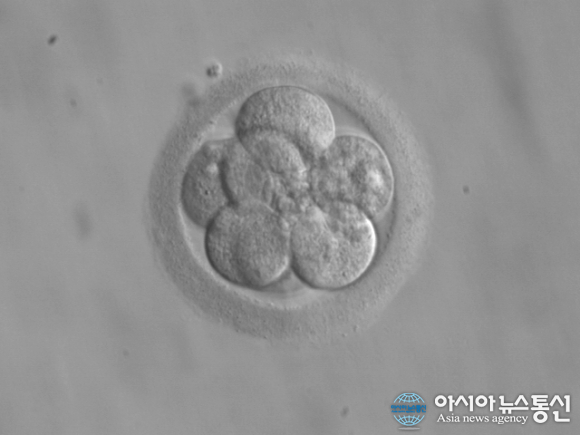 |
| Photo of Embryo cells / Photo by: ekem via Wikimedia Commons |
For the first time in history, scientists have successfully edited the human genome to repair a mutation known to cause severe mutations. The team of scientists claims that they have subsequently produced healthy embryos as a result.
This team was made up of international scientists from Oregon Health & Science University, the Salk Institute for Biological Studies, and Korea’s Institute for Basic Science.
The discovery is groundbreaking due to its potential to prevent newborns from carrying hereditary genes and diseases. This provides newfound optimism for gene engineering, which has been frowned upon in the past because of ethical concerns.
Richard Hynes, a researcher at the Massachusetts Institute of Technology, has said the criticisms come from the fear that gene editing could not be done safely in the past. “That’s still true, but now it looks like it’s going to be done safely soon,” Hynes said.
The study raises hopes that in the future, children can be born without diseases and that the children they have will not inherit the diseases either. Not only were the embryos of this study disease-free, but also, no mutations were created as a result of the study.
The study involved correcting a hereditary condition called hypertrophic cardiomyopathy. Fifty-four (54) mutated embryos were tested in this study and out of them, thirty-six (36) emerged without any mutations. Thirteen (13) others were also cured of some mutation, but not all of the cells were free of it.
The tool used is called CRISPR-Cas9, and although it has not perfectly edited every embryo, the researchers involved with the study hope that with further research, almost all embryos would be free of mutation.
CRISP-Cas9 works as a form of “scissors,” which identifies when a virus invades the embryo’s existing DNA. It snips out this section and alters it to its own genome.
This study is only a step in the right direction and will not be tested in clinical trials anytime soon. More research will have to be done but if the technique truly does work, then it will prevent 10,000 possible diseases from being passed on to newborns.
Previous efforts to get the same results have proved to be unsuccessful. Three different studies were conducted in China in the past two years, but not all embryos were repaired to this level.
The United Kingdom has allowed for researchers to use CRISP-Cas9 for research into gene editing during early development; however, these edited embryos are not allowed to be inserted into a human uterus to be born later on.
For now, clinical trials in the United States will not be conducted. The National Institute of Health does not have permission to conduct clinical trials involving germline-engineering in the embryos of people.
This breakthrough study is just another scientific study, which has the power to advance civilization; with it, there is hope that newborn babies can eventually be born without life-threatening diseases.

